The only sane response to a sunrise in Mongolia’s Tsengel Khairkhun
The howling banshee winds threatened to rip the footprint right out of my hands as I struggled mightily to pound the tent stakes into the rocky soil. My two guides were putting up the kitchen ger (Mongolian tent) right next to me, several pieces of massively heavy canvas held up by long wooden pools. I had it easy by comparison; my Kunai two-person tent was featherweight. But if the wind ripped it away, it would be in China by the time I said oh shit.
I hung on for dear life, the freezing, heart-stoppingly cold Mongolian wind tunneling through the headwaters valley, causing my fingers to fumble. I didn’t even feel it when I managed to hammer my left thumb, leaving the nail to bruise and throb all night.
A front was thundering in like a herd of Mongolian horses. The mountains, steep and blanketed with early fall snow, were shrouded in roiling clouds. The sun was behind them. Shadows in Mongolia are shockingly cold; I have Reynaud’s. And I can’t set up a tent with gloves on.
As it was, my Kunai was up and ready within three minutes. I stuck my white, cold fingers into my armpits. The resulting shriek was ripped away by the wind. I can lose my hands just that fast; you learn to deal with icy digits.
The boys enlisted my help, and we got the kitchen ger set up. We had a brand new, very flimsy tin stove whose pipe went through a metal-lined opening in the top to keep the heat from setting the canvas on fire. The eeek-eek-eeeking noise would last for hours.
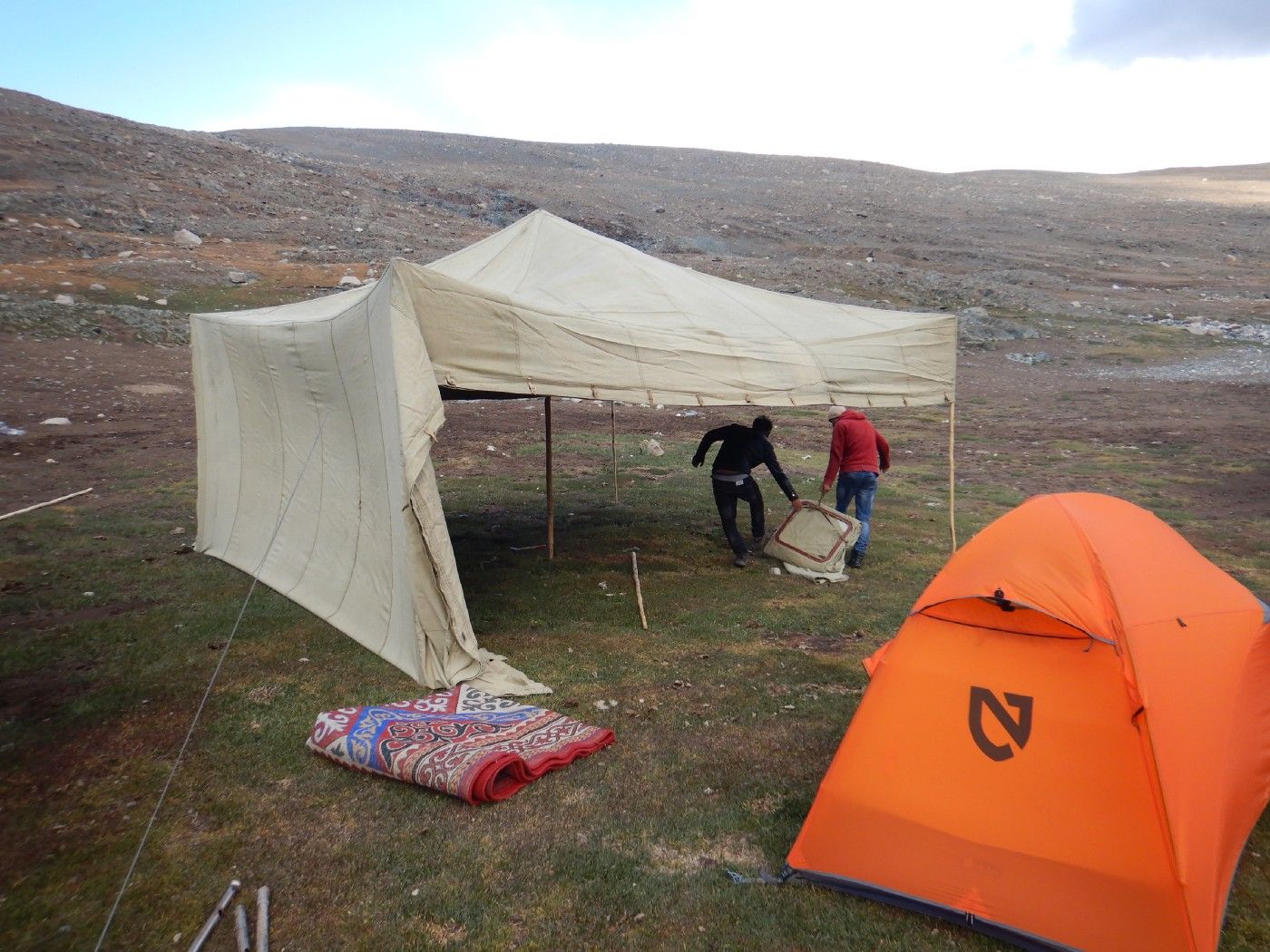
As a precaution, I threw my heaviest gear into my tent to ensure that if the wind lifted me at night, I would at least only be dragged, as opposed to finding myself wondering where Toto was. I would lie in the middle, lined on either side by full Sea to Summit bags that would (I hope) hold the tent down. I’d never tried to set up or sleep in 60 mph winds. This was going to be a howler.
In my hurry to help the boys when the winds tore the canvas out of their hands, I manage to trip over my tent wires twice, landing me face down next to cow shit, and cranking my knee. Then I nearly clothes-lined myself on the ger guy lines as I held onto errant canvas as the boys braced the tent poles to raise the tent high. Rough struggle but finally we got the ger set up.
We gathered cow dung, which was everywhere in all directions, for the stove. It makes no smell and is a superb fuel, burning down to very effective coals for hours. In minutes our brand new silver stove was black but pumping out wicked-good heat. The inside of the ger warmed, but the warmth was swiftly sucked away by the wind. We laid out the rugs, the boxes of food. Dinner was ready in no time.
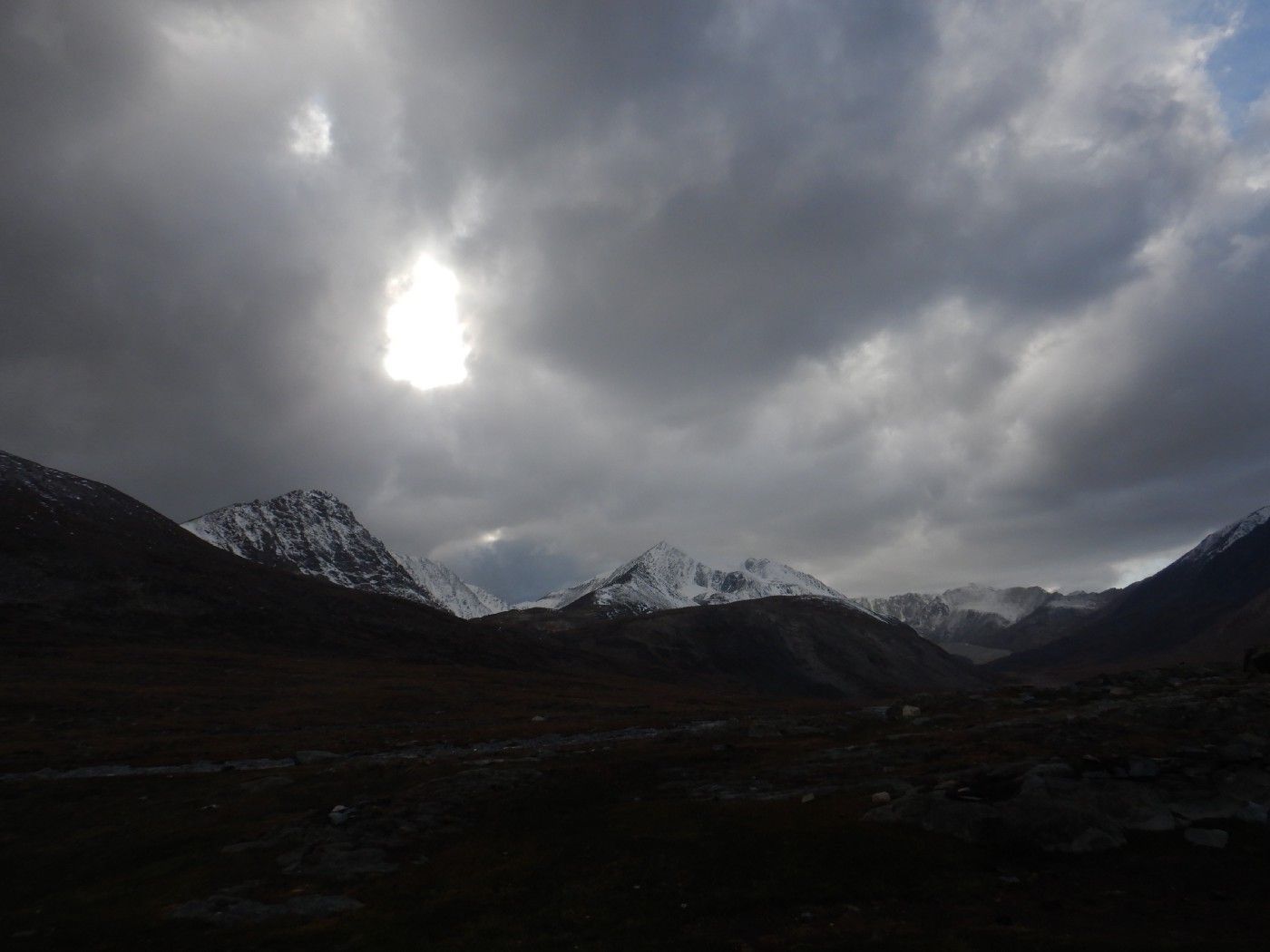
The sun barely peeked out again before the agitated storm clouds sucked her back behind them. The cold blew in, and finally, I headed for my tent. A minus 20 F Nemo bag surrounded me, warming me instantly.
The sides of my tent flapped hard. I could hear the kitchen ger tear, and at some point heard the stove disintegrate. There was no more eeek-eek. The pipe was down. The heavy canvas struggled against the mighty winds as the front bore down on us. I lay and listened to the sides of my tent bow in and out, as the harsh cold hands attempted to rip out my pegs and hurl me across the valley.
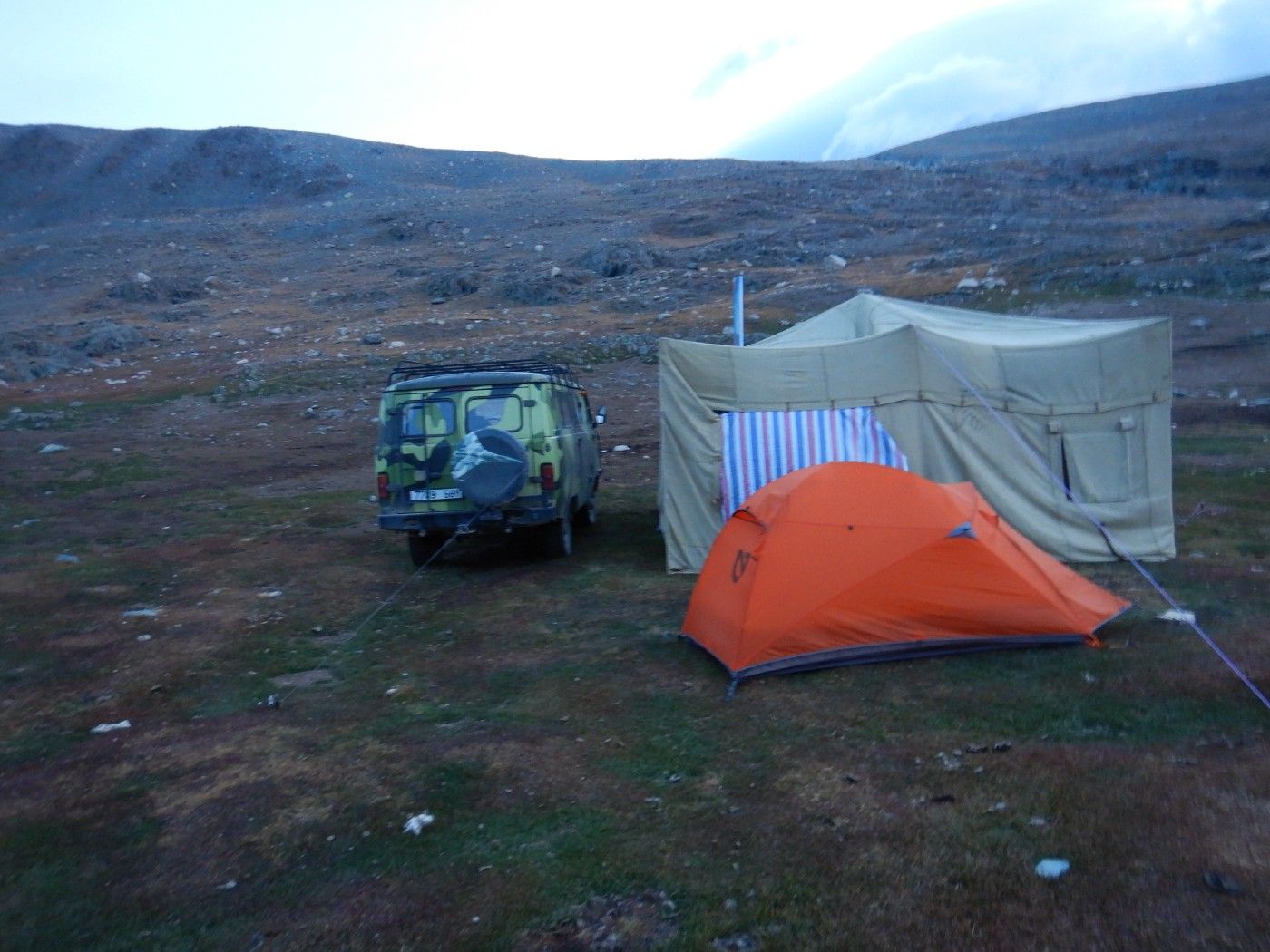
The next day we would be going to see the ancient petroglyphs, which were carved out thousands of years ago. That was, if we made it through the night. My tent seemed awfully flimsy. Only two thin barriers separated me from the screaming winds.
I was awake all night, watching the sides of my tent blow in and out like the inside of a monster pair of lungs. As a child of Florida, hurricane force winds are familiar. But not inside a flimsy tent, not in the high country, hunkering down as I was inside this tiny bubble of relative warmth, listening to the gales grab and tug at my tiny house.
I got up at four am, as I always do, driven in part to relieve myself and out of curiosity for how we fared.
My tent was fine. Juxtaposed against Just Fine was the kitchen ger,which had collapsed during the night. The stove was in pieces, and the wind had whipped a few more things out of the tent. I gathered them up in the early light and tucked them under the canvas.
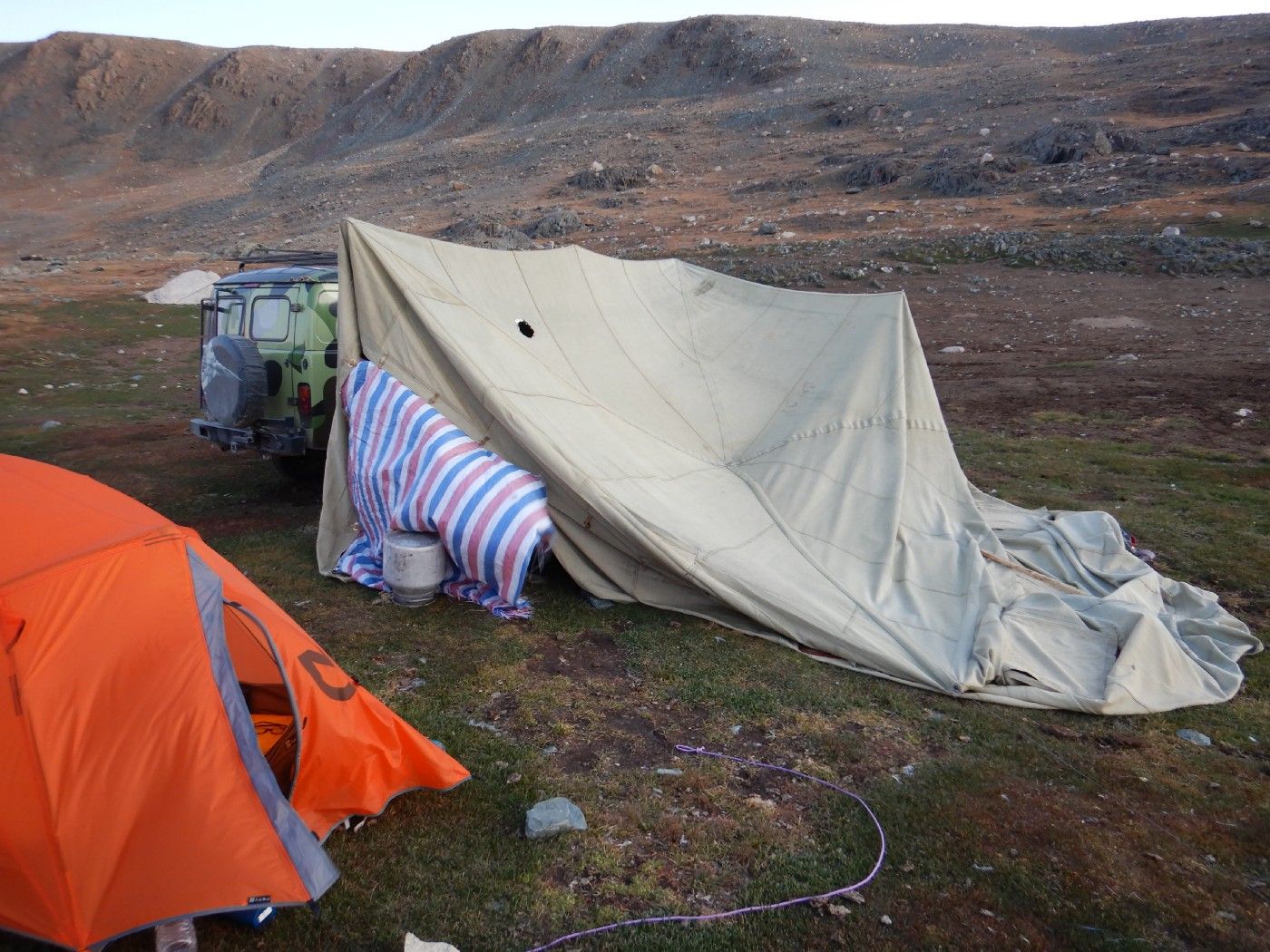
The boys were still asleep in the van, so I wandered off, my headphones and iPod in place, to find a rocky outcropping on which to welcome the sunrise. The moon was still balanced over the mountains, and the stars were close to twinkling out of sight.
I found a rock seat that overlooked the trickling headwaters of the river we’d driven next to for hours the previous day. Here the snows began their long journey across the country. I settled down comfortably, my down pants and coat a match for the intense early morning cold and wind. The worst was passed, but the steady winds remained. In Mongolia, they always do.
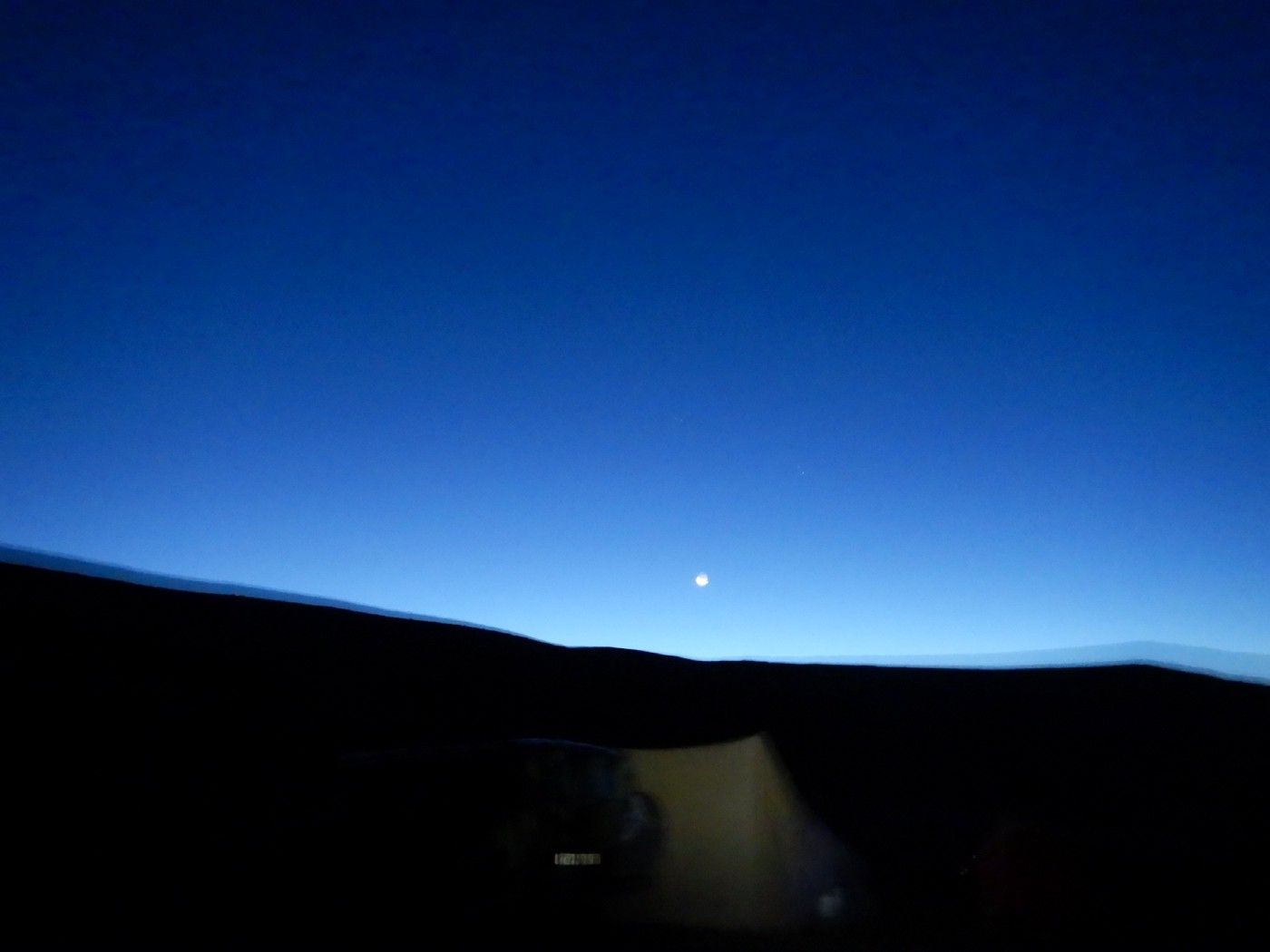
As I sat in the silence and studied the sky, I wanted music. But not just any music. Found just the pieces to honor where I was and what I was seeing. As well, where I am in life, facing down 67. A survivor of some of the nastier things that can happen to a single woman in the world, on her own all her life.
As the sky softly lightened, I welcomed the first of the dawn with the opening movement of Beethoven’s Eroica. This heroic and deeply emotional piece brought tears to my eyes as I witnessed the dawning of a new day in one of the world’s most isolated places, seldom seen by Westerners like me. Lovers of Beethoven’s work will fully understand this choice; the music leaps into the heart and takes you on a journey of discovery. The music rose and swelled, which was precisely how I was feeling. We’d made it through the night, and I was at the feet of some of the most humbling, gorgeous scenery on earth.
Who wouldn’t feel heroic?
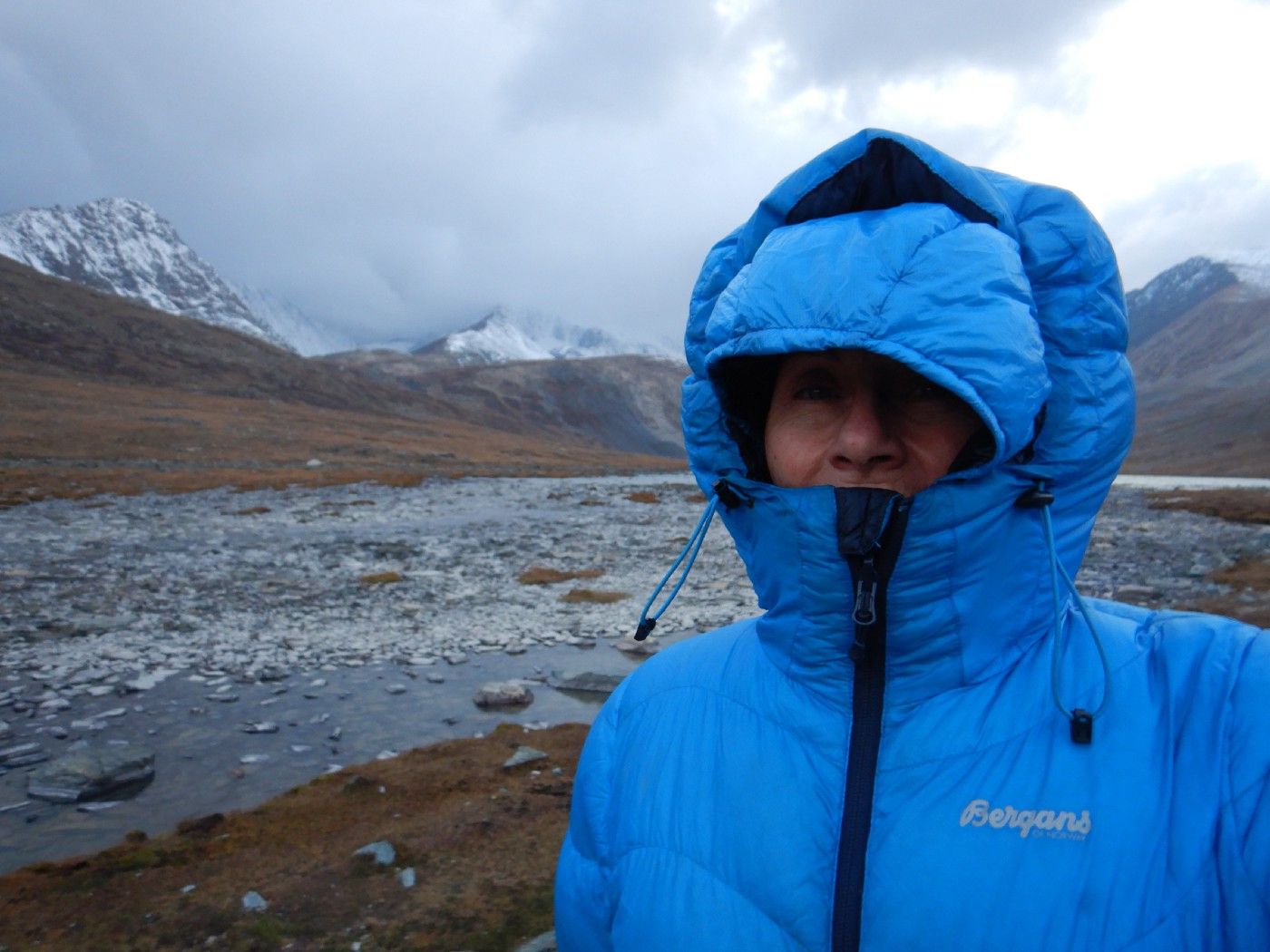
The first movement over, I turned my back to the slowly rising sun to watch it paint the mountains, barely a mile away by foot.
Then I stood, and with the sun slowly beginning to touch my back, I changed to one of the most magnificent odes to the glory of nature and to the human spirit ever written:
Beethoven’s 9th, specifically, Ode to Joy.
For a charming flashmob take on this please see this, and watch how people respond to this incredible music. They do the world over. You will understand why I faced the rising wind, the sun splashing on the mountains, tears running down my cheeks and freezing there, doing my best Bruno Walter impersonation.
Ode to Joy, like the chorale from Handel’s Messiah*, is one of the most famous of all classical pieces, and is a statement of triumph over hearing loss, depression, suicidal thoughts, a celebration of life for the by-then deaf Beethoven. That he could write such intensely powerful music without hearing is in and of itself a triumphant statement. Many who are not familiar with Beethoven’s life aren’t familiar with his difficulties; that he was brutally beaten as a child, suffered deafness early, and was beset with personal and financial challenges. He died at 57.
Yet. His last great symphony was a triumph of ecstasy, a statement of victory over the worst life had to offer. You don’t need to know the story to feel the power of the music. I have faced down depression, suicide, sexual abuse and attacks, bankruptcy. Yet here I stood, in the face of these awesome mountains, air-conducting what is perhaps the single greatest ode to ascendancy of the spirit over despair ever written. I almost didn’t make it.
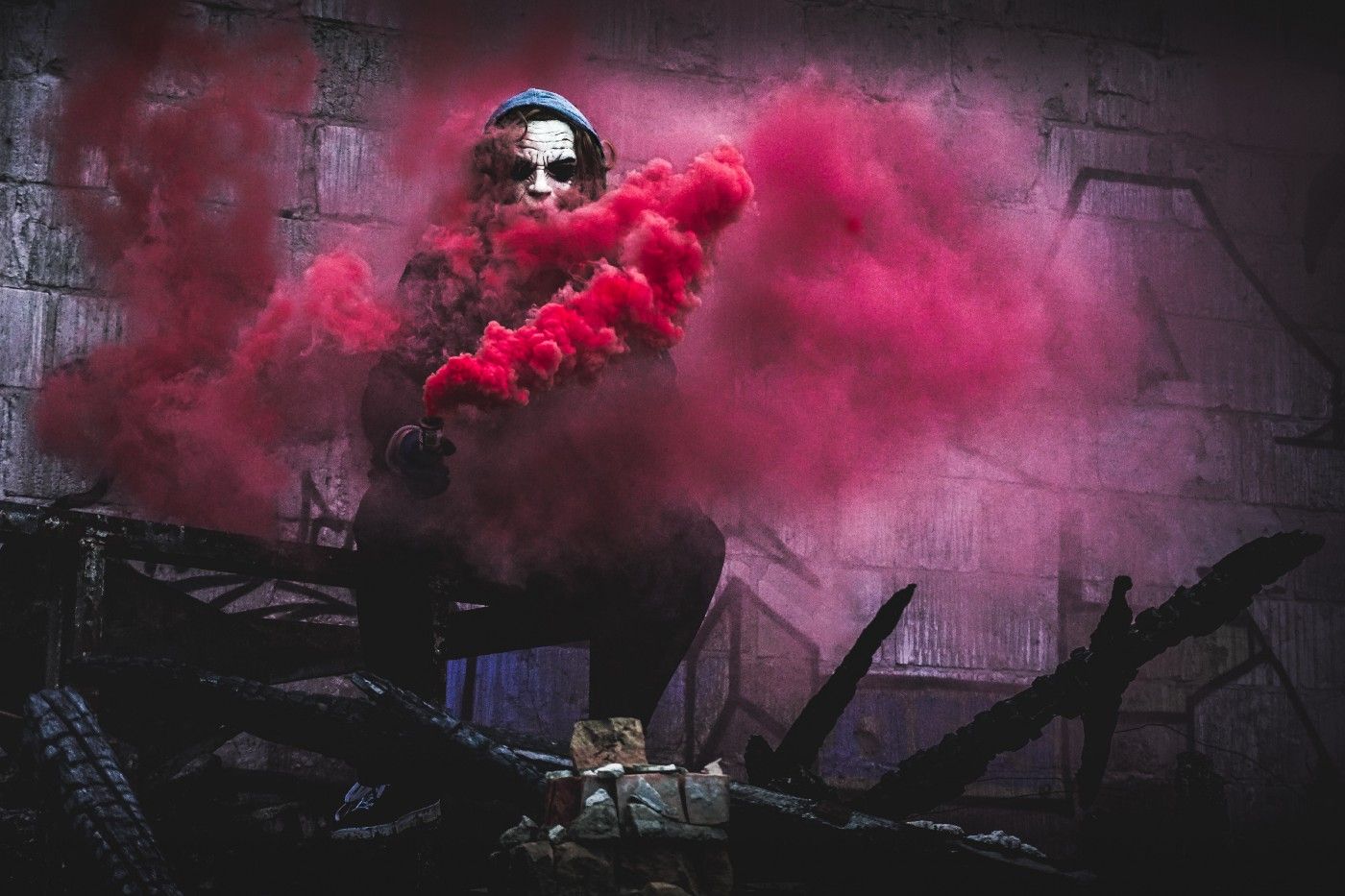
Yet, I did. I am 67. My brother took his life at 62. He didn’t. I am the last in my family. I have looked into abyss, the motherfucker looked back up at me. Then I reached down into that foul hole, dragged that slimy demon out and throttled the sonofabitch. And here I stood, so full of gratitude I wept.
Ode to Joy speaks to that in each of us. This scene in Immortal Beloved captures how the music, when it was first heard, was received. There is no better musical statement about love, the gift of life, the chance to experience all it has to offer. To overcome, no matter what.
The longer we live, the more we can appreciate what it means to overcome the inevitability of life. The ebbs and flows and unnameable pain and hurts that dog us. The more we can learn to celebrate that today, we are alive. Breathing. Not only that, but standing in front of heart-stopping beauty, cold wind stinging our cheeks, conducting music that courses tears down our faces.
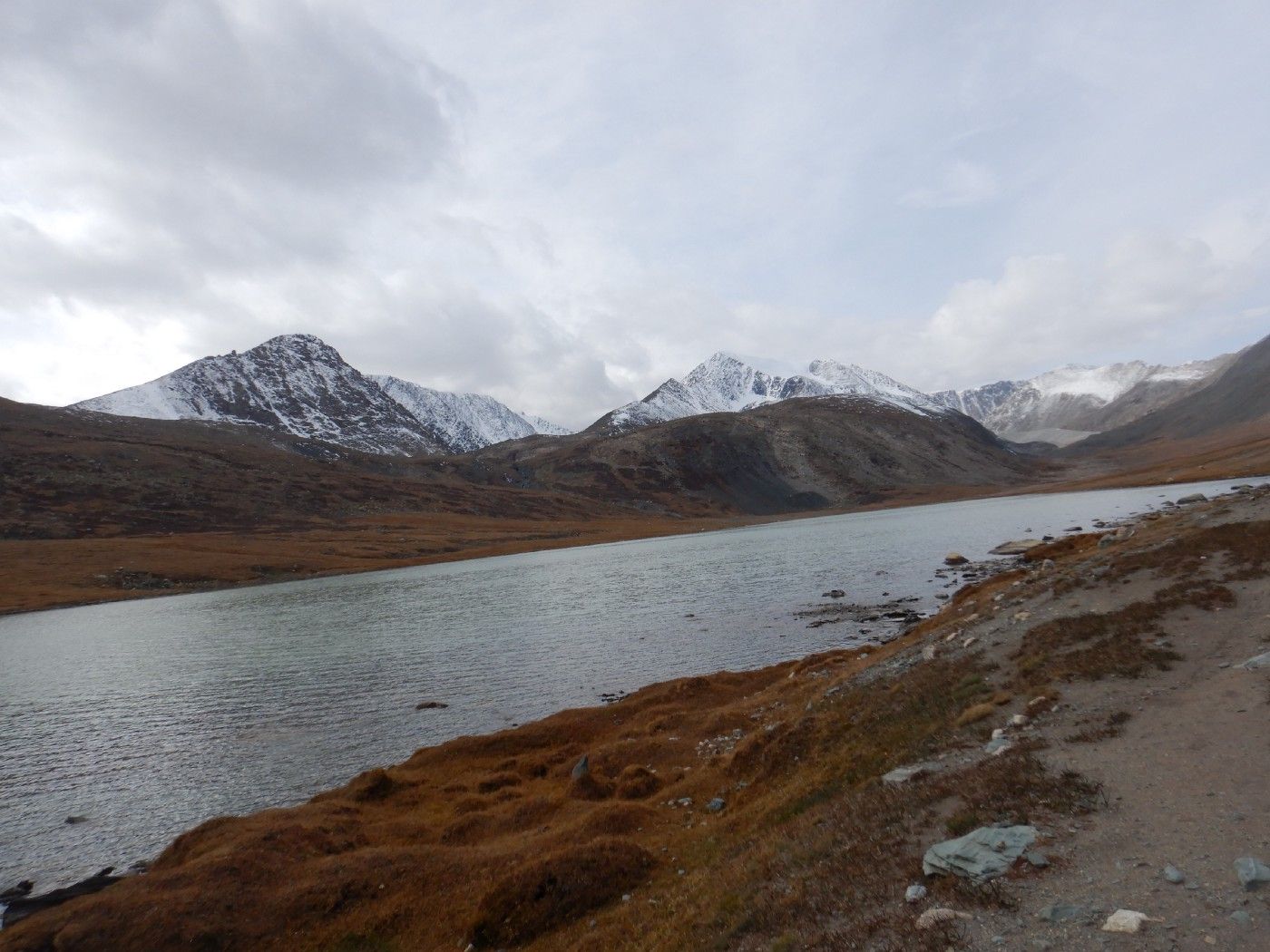
Sometimes there are no words. There is only music, the music of winds, the music of the spheres, the music of life, the music of pure unadulterated joy.
Of life.
I can only hope with my entire heart that each of you experiences something so powerful, so moving that you are in tears, not just for the vision, but the music. Whatever music moves you to be so grateful you are alive, so humbled at the glory of the fact of your existence, that all you can possibly do is cry.
For pure joy.
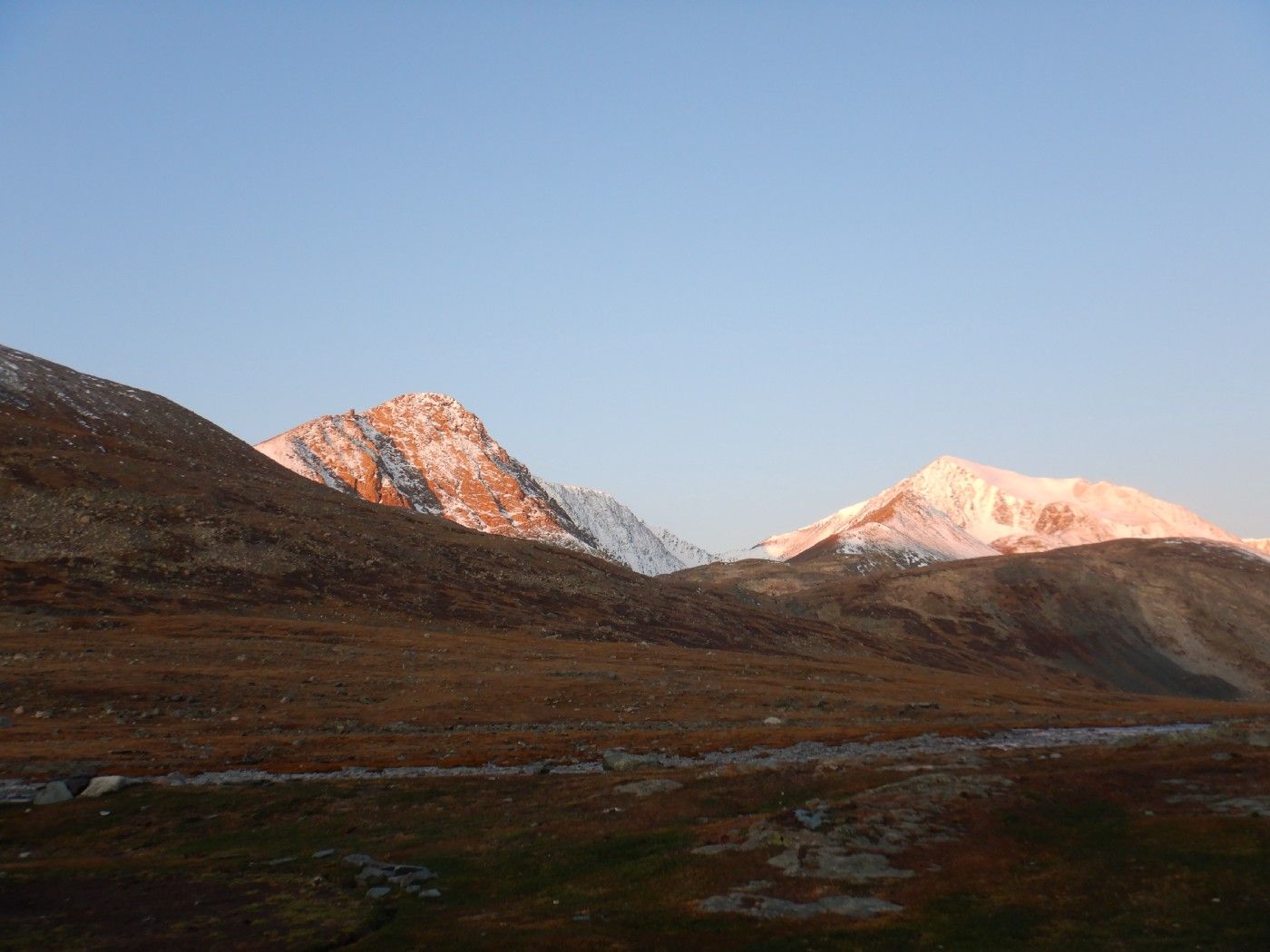
Just in case you’re not familiar with the chorale from Handel’s Messiah, here’s a superb flashmob scene in a food court. Whatever your religious leanings are, this is simply a celebration of glorious happiness, shared with great love by a great many people.
My thanks to Zavkhan Travel for their custom-designed trip, which allowed me to experience such breathtaking beauty.
Comments powered by Talkyard.